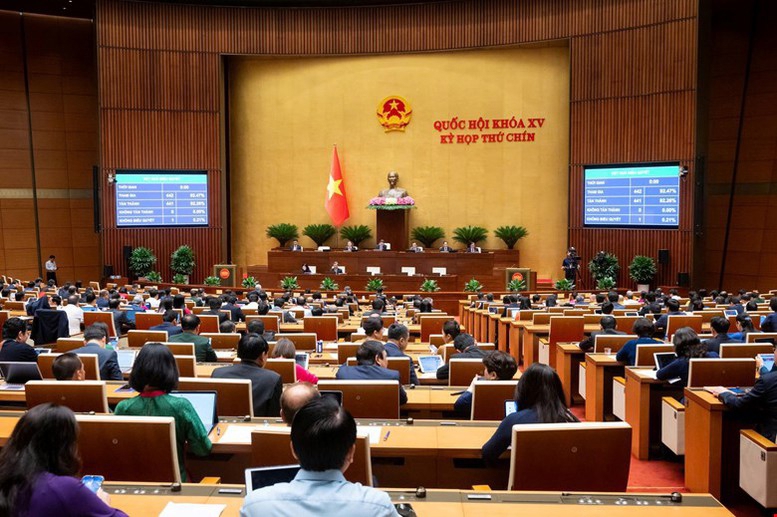The National Assembly passed the amended Law on Atomic Energy on June 27, which stipulates several specific provisions for the atomic energy sector, according to a report from the Government News.
Prior to the vote, Chairman of the National Assembly's Committee on Science, Technology, and Environment, Mr. Le Quang Huy, delivered a comprehensive report outlining the feedback received and revisions made to the draft legislation.
The newly amended Law comprises 8 chapters and 73 articles. In its revision process, emphasis was placed on legal consistency, with provisions affecting other laws redirected to relevant legislation scheduled for passage during the 15th National Assembly's 9th Session. The amended Law establishes a solid legal framework tailored to the atomic energy sector.
Key policy provisions have been articulated as guiding principles and delegated to the Government for detailed regulation. These include support for training, personnel remuneration policies, socialization measures, and initiatives to bolster international cooperation in atomic energy.
In recognition of the critical importance of radiation safety, nuclear safety, and nuclear security, the Law establishes a national agency tasked with ensuring compliance with International Atomic Energy Agency (IAEA) standards, international treaties, and practices adapted to Vietnam’s context.
Chapter III of the Law is devoted entirely to radiation protection and nuclear safety, including regulations on the siting, treatment, and disposal of radioactive waste, spent sources, and nuclear fuel. These locations must be clearly identified within national, regional, and provincial planning documents, including the overall atomic energy development strategy.
Specific provisions related to nuclear power plants have also been refined. The Law now addresses the full lifecycle of nuclear facilities—from investment and construction to operation and decommissioning—with measures to ensure safety and security oversight. These updates align national legislation with global best practices and IAEA guidelines.









 Google translate
Google translate